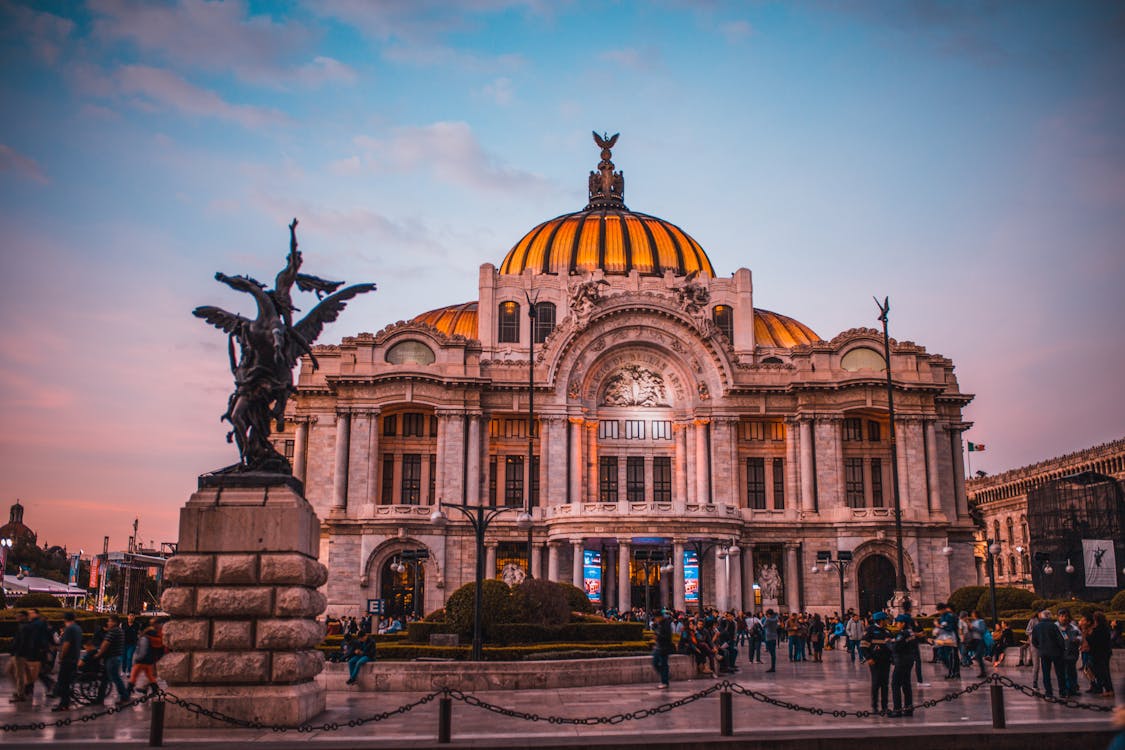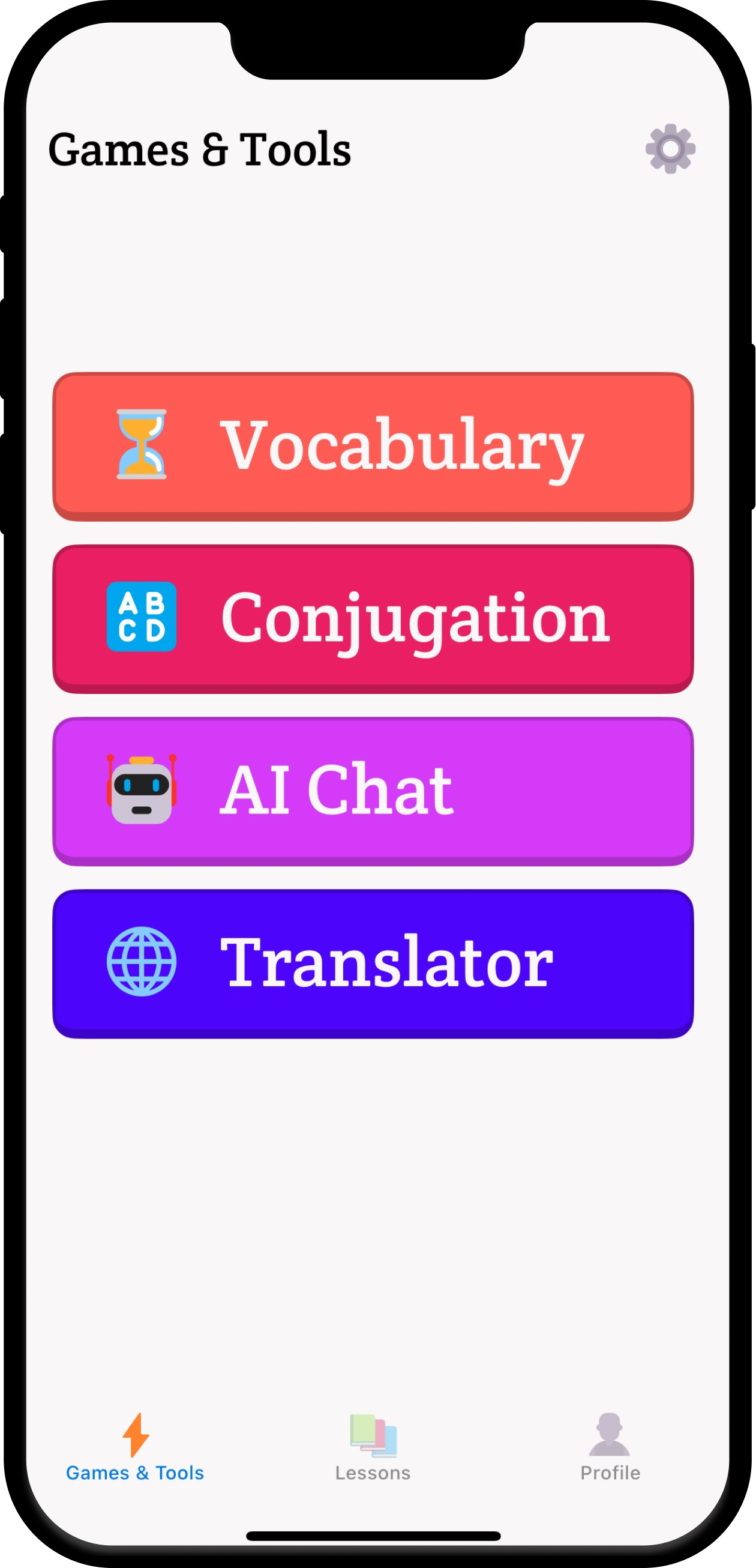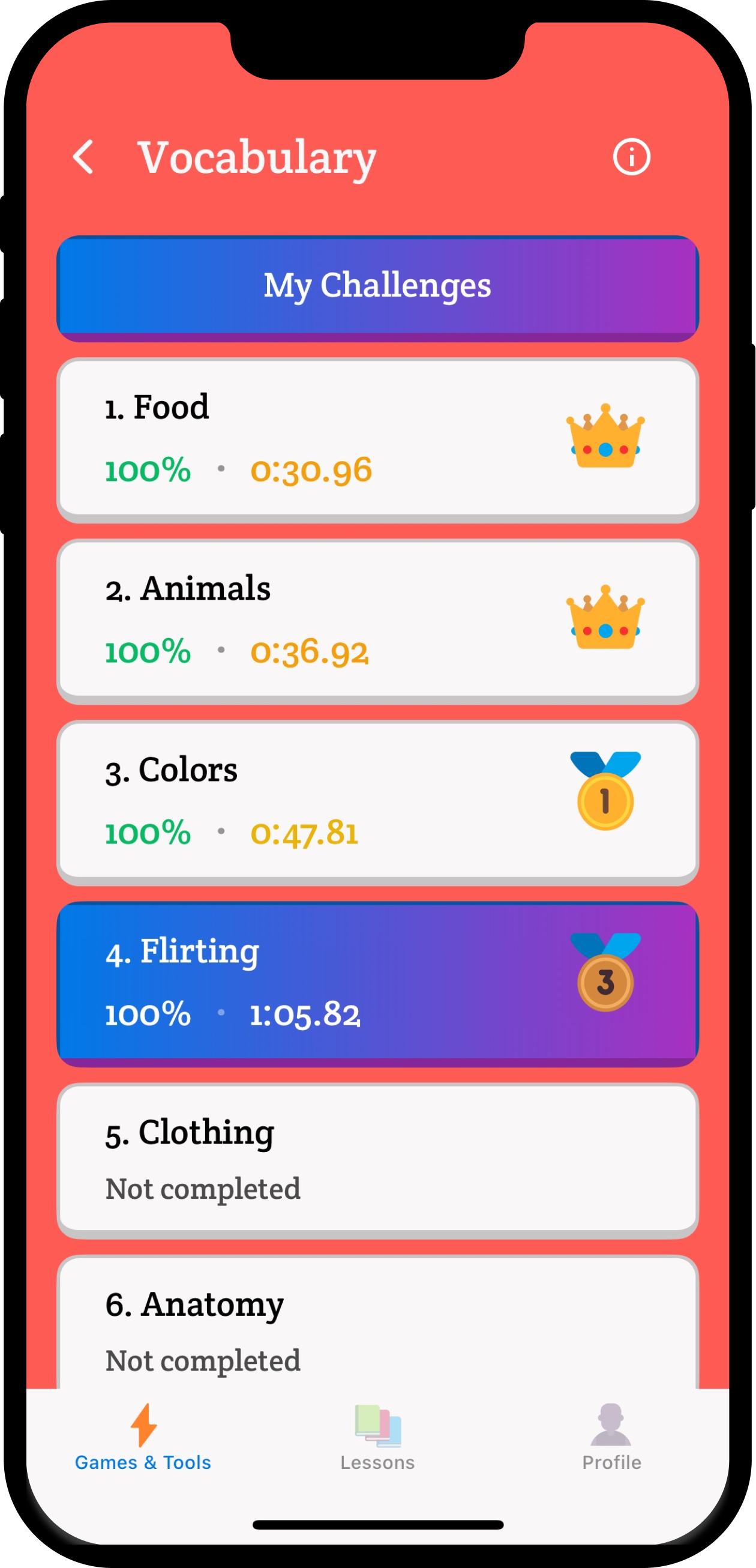100 Spanish Slang Words You Need to Know

Table of Contents
- Spain 🇪🇸
- Mexico 🇲🇽
- Argentina 🇦🇷
- Colombia 🇨🇴
- Chile 🇨🇱
- Peru 🇵🇪
- Central America
- Caribbean Spanish
- General Latin America
Ready to Learn More?
Try PolyChat's interactive language learning games and put your new vocabulary to the test!

Games & Tools
Essential tools for every learner

Timed Challenges
Practice vocabulary & conjugation

Interactive Games
Learn through engaging gameplay
Understanding slang is essential for sounding natural in any language. In Spanish-speaking countries, slang varies widely by region, but some expressions are universally recognized. This comprehensive guide introduces you to 100 essential Spanish slang words and phrases that will help you communicate more naturally with native speakers.
Spain 🇪🇸
- Guay: Cool, awesome. ¡Qué guay tu camiseta! (Your t-shirt is so cool!)
- Tío/Tía: Dude, guy/gal (informal address). ¿Qué pasa, tío? (What's up, dude?)
- Molar: To like, to be cool. Me mola esta canción. (I like this song / This song is cool.)
- Flipante: Amazing, mind-blowing. La película fue flipante. (The movie was amazing.)
- Currar: To work. Mañana tengo que currar. (I have to work tomorrow.)
- Piso: Apartment, flat. Vivo en un piso en el centro. (I live in an apartment downtown.)
- Pasta: Money. No tengo pasta para salir. (I don't have money to go out.)
- Colega: Friend, buddy. Voy al cine con mis colegas. (I'm going to the cinema with my buddies.)
- Cutre: Shabby, tacky, low-quality. Ese bar es un poco cutre. (That bar is a bit tacky.)
- Majo/a: Nice, friendly, pleasant. Tu hermano es muy majo. (Your brother is very nice.)
- Potar: To vomit. Bebió demasiado y acabó potando. (He drank too much and ended up vomiting.)
- Bocata: Sandwich (specifically in baguette-style bread). Me voy a comer un bocata de jamón. (I'm going to eat a ham sandwich.)
- Chulo/a: Cool, neat (can also mean cocky). ¡Qué chulas tus zapatillas! (Your sneakers are so cool!)
- Pillar: To catch (a cold, the bus, someone lying). Pillé un resfriado terrible. (I caught a terrible cold.) / ¿Pillas lo que digo? (Do you get what I'm saying?)
- Liarse: To get involved/hook up with someone; to get complicated. Se liaron en la fiesta. (They hooked up at the party.) / La cosa se está liando. (Things are getting complicated.)
Mexico 🇲🇽
- Chido/Padre: Cool, awesome. ¡Qué padre está tu coche! (Your car is awesome!)
- Güey: Dude (very common). No manches, güey. (No way, dude.)
- Neta: Truth, really?. ¿Es neta? (Is that true? / Really?)
- Bronca: Problem, argument. No quiero tener broncas contigo. (I don't want to have problems with you.)
- Chamba: Work, job. Encontré una nueva chamba. (I found a new job.)
- Aguas: Watch out! Be careful! ¡Aguas con el perro! (Watch out for the dog!)
- Chela: Beer. Vamos por unas chelas. (Let's go for some beers.)
- Fresa: Preppy, snobbish person. Esa chica es muy fresa. (That girl is very preppy.)
- Crudo: Hungover. Estoy bien crudo hoy. (I'm really hungover today.)
- Chafa: Low-quality, cheap. Este teléfono salió bien chafa. (This phone turned out to be really low-quality.)
- Lana: Money. Necesito más lana. (I need more money.)
- Órale: Wow! / Okay / Come on! / Hurry up! (Very versatile). ¡Órale, qué bien cantas! (Wow, you sing so well!) / Órale, vamos. (Okay, let's go.)
- Pedo: Problem / Drunk / Party (very versatile, context is key!). No hay pedo. (No problem.) / Andaba bien pedo. (He was really drunk.) / ¡Qué buen pedo anoche! (What a great party last night!)
- Botana: Snack, appetizer. Traje unas botanas para la reunión. (I brought some snacks for the meeting.)
- Chamaco/a: Kid, young person. Los chamacos están jugando afuera. (The kids are playing outside.)
Argentina 🇦🇷
- Che: Hey, dude (iconic informal address). Che, ¿vamos al cine? (Hey, shall we go to the movies?)
- Quilombo: Mess, chaotic situation. ¡Qué quilombo hay en la calle! (What a mess there is in the street!)
- Fiaca: Laziness, lack of motivation. Tengo mucha fiaca hoy. (I feel really lazy today.)
- Pibe/Piba: Boy/Girl, young person. Ese pibe juega bien al fútbol. (That kid plays soccer well.)
- Bondi: Bus. Tengo que tomar el bondi para ir a casa. (I have to take the bus to go home.)
- Mango: Money (specifically pesos). No tengo un mango. (I don't have any money.)
- Mina: Woman, girl (can be slightly objectifying depending on context). ¿Viste a esa mina? (Did you see that girl?)
- Laburo: Work, job. Estoy buscando laburo. (I'm looking for work.)
- Birra: Beer. Vamos a tomar unas birras. (Let's go have some beers.)
- Boludo/a: Idiot, fool (very common, used affectionately between friends or as an insult). ¡Che, boludo, pasame la sal! (Hey idiot/dude, pass me the salt!) - Use with caution!
- Trucho/a: Fake, counterfeit, low-quality. Este reloj es trucho. (This watch is fake.)
- Chabón/Chabona: Dude, guy/gal. Ese chabón es mi amigo. (That guy is my friend.)
- Remera: T-shirt. Me compré una remera nueva. (I bought a new t-shirt.)
- Dale: Okay, go ahead, come on. ¿Vamos? Dale. (Shall we go? Okay.)
- Canchero/a: Cool, skilled, confident (sometimes arrogant). Es muy canchero jugando al tenis. (He's very cool/skilled playing tennis.)
Colombia 🇨🇴
- Parce/Parcero/a: Friend, dude, mate. ¿Quiubo, parce? (What's up, friend?)
- Chévere: Cool, great, awesome. La fiesta estuvo muy chévere. (The party was really cool.)
- Guayabo: Hangover. Tengo un guayabo terrible. (I have a terrible hangover.)
- Rumba: Party, to party. Vamos de rumba esta noche. (Let's go party tonight.)
- Camello: Work, job (literally camel). Mañana tengo camello. (I have work tomorrow.)
- Bacano/a: Cool, great (similar to Chévere). ¡Qué bacano ese carro! (That car is so cool!)
- Pola: Beer. Tomemos unas polas frías. (Let's have some cold beers.)
- Tinto: Black coffee (small cup). ¿Me regala un tinto, por favor? (Could I have a black coffee, please?)
- Vaina: Thing, stuff (also used here). Pásame esa vaina. (Pass me that thing.)
- Filo: Hunger (literally edge). Tengo un filo que me muero. (I'm starving / so hungry I could die.)
- Chino/a: Kid, child (common informal term). Los chinos están jugando. (The kids are playing.)
- Guaro: Aguardiente (anise-flavored liquor, popular). Tomamos guaro anoche. (We drank aguardiente last night.)
Chile 🇨🇱
- Cachai: Do you understand? Get it? Vamos a la playa, ¿cachai? (We're going to the beach, get it?)
- Bacán: Cool, awesome. ¡Qué bacán tu polera! (Your t-shirt is awesome!)
- Pololo/Polola: Boyfriend/Girlfriend. Voy a salir con mi polola. (I'm going out with my girlfriend.)
- Fome: Boring. La película estuvo fome. (The movie was boring.)
- Al tiro: Right away, immediately. Voy al tiro. (I'm going right away.)
- Guata: Belly, stomach. Me duele la guata. (My stomach hurts.)
- Carrete: Party. El carrete estuvo bueno. (The party was good.)
- Cuico/a: Snobbish, upper-class person. Vive en un barrio cuico. (He/She lives in a snobby neighborhood.)
- Flaite: Tacky, low-class (often derogatory). Ese estilo es muy flaite. (That style is very tacky.)
- Pega: Work, job. Encontré pega nueva. (I found a new job.)
- Caleta: A lot, many. Había caleta de gente. (There were a lot of people.)
- Copete: Alcoholic drink. Vamos a tomar un copete. (Let's go have a drink.)
Peru 🇵🇪
- Chévere: Cool, great. ¡Qué chévere! (How cool!)
- Pata: Friend, dude (close friend). Es mi pata del barrio. (He's my friend from the neighborhood.)
- Jato: House, home. Vamos a mi jato. (Let's go to my place.)
- Chamba: Work, job. Estoy buscando chamba. (I'm looking for work.)
- Al toque: Right away, quickly. Hazlo al toque. (Do it right away.)
- Causa: Friend, buddy (similar to Pata). Habla, causa. (What's up, buddy?)
- Tono: Party. Hay un tono en su casa. (There's a party at his house.)
- Chela: Beer (also common here). Tráeme una chela helada. (Bring me an ice-cold beer.)
- Pituco/a: Snobbish, upper-class (similar to Cuico/Fresa). Es bien pituco. (He's quite snobby.)
- Flaco/a: Boyfriend/Girlfriend (literally skinny). Salí con mi flaca. (I went out with my girlfriend.)
Central America (Examples from various countries)
- Mae: Dude, guy (Costa Rica, very common). ¿Todo bien, mae? (Everything okay, dude?)
- Chunche: Thing, stuff (Costa Rica). Pásame ese chunche. (Pass me that thing.)
- Birria: Beer (Costa Rica/Nicaragua). Quiero una birria. (I want a beer.)
- Chavo/a: Kid / Money (Honduras/El Salvador). Los chavos están jugando. (The kids are playing.) / No tengo chavos. (I don't have money.)
- Cipote/a: Kid, child (El Salvador/Honduras). Ese cipote es travieso. (That kid is mischievous.)
- Pisto: Money (Guatemala/Honduras/El Salvador). Necesito pisto para el bus. (I need money for the bus.)
- Chucho: Dog / Stingy person (Guatemala/El Salvador). Cuidado con el chucho. (Careful with the dog.) / Es bien chucho. (He's very stingy.)
- Bolo/a: Drunk (Guatemala/Honduras). Estaba bolo anoche. (He was drunk last night.)
- Cerote: Dude / Idiot (Guatemala, can be offensive). ¿Qué onda, cerote? (What's up, dude?) - Use with extreme caution!
Caribbean Spanish (Examples)
- Tipo/a: Guy/Girl (Dominican Republic/Puerto Rico). Ese tipo es mi vecino. (That guy is my neighbor.)
- Vaina: Thing, stuff (Dominican Republic, very versatile). ¿Qué vaina es esa? (What is that thing?)
- Chavos: Money (Puerto Rico, cents or money in general). No tengo chavos. (I don't have money.)
- Guagua: Bus (Cuba/Puerto Rico/Dominican Republic). Tomé la guagua. (I took the bus.)
- Asere: Friend, dude (Cuba). Asere, ¿qué bolá? (Dude, what's up?)
- Jeans: Pants/Trousers (Cuba, using the English word). Me puse los jeans azules. (I put on the blue jeans/pants.)
General Latin America (Widely Understood)
- Plata: Money (literally silver). No tengo plata. (I don't have money.)
- Fresco/a: Calm down, don't worry. Todo bien, fresco. (Everything's fine, don't worry.)
- Buena onda: Good vibes, cool person/situation. Tu amigo es buena onda. (Your friend is cool / has good vibes.)
- Mala onda: Bad vibes, uncool person/situation. Qué mala onda que no viniste. (What a bummer/bad vibe that you didn't come.)
- Porfa: Please (short for por favor). Pásame la sal, porfa. (Pass me the salt, please.)
- Chau/Chao: Bye (from Italian Ciao). Nos vemos, ¡chau! (See you, bye!)
Learn Other Languages from Spanish with PolyChat
Are you a Spanish speaker looking to learn other languages? PolyChat is the perfect app for you! As a Spanish speaker, you have unique advantages when learning certain languages, and PolyChat leverages these connections to accelerate your language learning journey.
Why Spanish Speakers Excel at Learning These Languages:
🇮🇹 Italian - Sister Romance language! Spanish and Italian share 82% vocabulary and very similar grammar.
🇵🇹 Portuguese - Iberian sibling with 89% lexical similarity and familiar phonetic patterns.
🇫🇷 French - Romance cousin with shared Latin roots and similar conjugation systems.
🇷🇴 Romanian - Fellow Romance language with familiar grammatical concepts and vocabulary roots.
🏴 Catalan - Regional cousin with 85% vocabulary overlap and similar structures.
PolyChat's Advantage for Spanish Speakers:
✅ Romance Language Mastery - Excel at Italian, Portuguese, French, and Romanian using your Spanish foundation ✅ Latin American Bridge - Connect with Portuguese speakers across Brazil and Portuguese-speaking Africa ✅ European Gateway - Use your Romance background to master French and Italian more effectively ✅ Global Dominance - Connect with 1.5+ billion Romance language speakers worldwide
Ready to become a Romance language master? Download PolyChat today and discover how your Spanish language skills can unlock a world of new languages!
PolyChat - The best app to learn languages from Spanish 🇪🇸→🌍
This list provides a wide variety of Spanish slang! Spanish slang is incredibly rich and diverse. Keep listening, keep talking, and you'll pick up even more terms naturally.
Related Posts
100 French Slang Words and Expressions You Should Know
Discover essential French slang words and expressions that will help you sound more natural and understand everyday conversations with native speakers.
Read more100 German Slang Words and Expressions to Sound Like a Native
Master essential German slang and colloquial expressions to understand native speakers and make your German sound more natural and authentic.
Read more100 Palabras y Expresiones de Jerga Inglesa
Una guía completa de la jerga inglesa, incluyendo falsos amigos, modismos y expresiones que suelen causar confusión.
Read more